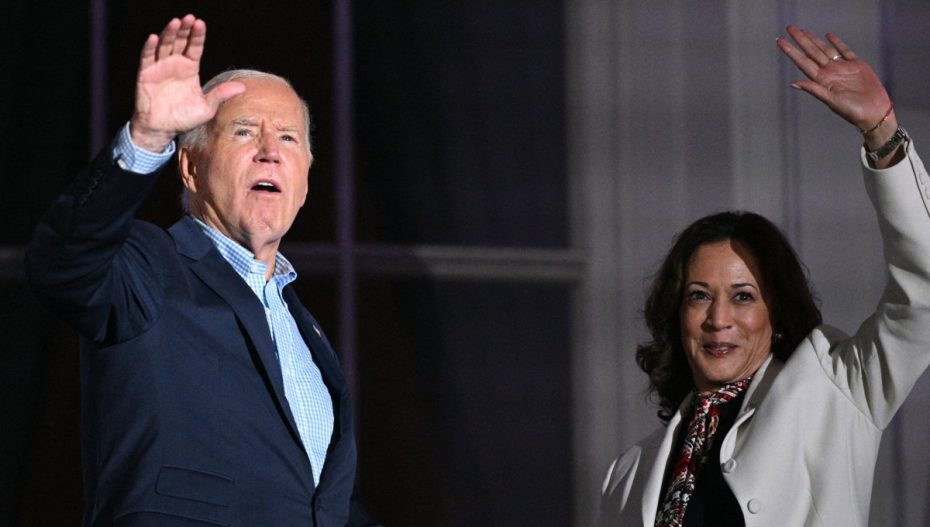Biden’s Withdrawal and Harris’s Ascendancy: Navigating a Historic Shift in the 2024 U.S. Presidential Election
International International NewsPosted by pallavi on 2024-07-25 06:33:27 |
Share: Facebook | Twitter | Whatsapp | Linkedin Visits: 175

Joe Biden Withdraws from the 2024 U.S. Presidential Race:
An OverviewOn July 21, 2024, U.S. President Joe Biden announced his withdrawal from the 2024 presidential race, a move that has significant implications for the Democratic Party and the upcoming election. Biden, who will remain in office until January 2025, endorsed Vice President Kamala Harris as his successor. This unexpected decision came amid increasing pressure from within his party and follows a series of public missteps and health concerns.
Background and Decision to Withdraw:
Biden's decision to step down was influenced by several factors. Over the past weeks, his performance and health had been scrutinized, especially after a lackluster debate against former President Donald Trump on June 27. Democratic leaders, including former House Speaker Nancy Pelosi and Rep. Lloyd Doggett, expressed doubts about Biden’s ability to continue his campaign. Despite initial resistance, Biden's team struggled to alleviate these concerns, culminating in his decision to withdraw from the race while recovering from COVID-19 at his Delaware beach house .
Implications for the Democratic Party:
Biden’s withdrawal has left the Democratic Party in a state of flux, as they now have to navigate an unprecedented shift in the election year. The Democratic National Convention, scheduled for August 19-22 in Chicago, will now focus on selecting a new nominee from nearly 4,700 delegates. Biden’s endorsement of Kamala Harris positions her as the frontrunner, but other potential candidates include Governors Gavin Newsom of California, Gretchen Whitmer of Michigan, and Josh Shapiro of Pennsylvania .
Kremlin's Reaction:
Internationally, Biden's withdrawal has drawn cautious reactions. The Kremlin, through spokesperson Dmitry Peskov, expressed indifference, noting the unpredictability of U.S. politics and Harris’s minimal impact on U.S.-Russia relations. This reaction underscores the global uncertainty and varied responses to the sudden shift in the U.S. political landscape .
Historical Context and Party:
DynamicsHistorically, the decision to withdraw so close to an election is unprecedented for an incumbent president. The last comparable event was President Lyndon Johnson’s 1968 announcement not to seek re-election, which led to significant political turmoil. The current situation presents both risks and opportunities for the Democratic Party. Harris, endorsed by Biden, now faces the challenge of consolidating support from delegates and voters. However, the party must also contend with the potential for division, as seen in past instances where internal conflicts arose over candidate selection .
Future Prospects and Challenges:
With just over 100 days until the election, the Democratic Party must quickly unify behind a new candidate to effectively challenge Donald Trump. Harris’s candidacy, while bolstered by Biden’s endorsement, must still navigate the complexities of gaining broad support within the party and addressing the concerns that led to Biden's withdrawal. The primary process, typically a predictable affair, now involves significant deal-making and strategic maneuvering, reminiscent of older, less streamlined conventions .
Search
Categories
Recent News
- Dreamliner Radar Glitch Grounds Delhi-Bound Flight
- Deputy CM Pawan Kalyan's State Tour: Prioritising People's Welfare
- Indian IT Giants Stumble: Anthropic's AI Launch Triggers Global Sell-off
- T20 Champions Battle: India Faces South Africa in Warm-Up Clash
- Championing Farmers: Andhra Pradesh's Innovative Agricultural Revolution
- Andhra Pradesh Land Acquisition Sparks Livelihood Crisis
- CBSE Empowers Teachers with Practical Skill Education
- Renowned Poet's Daughter Accuses Husband of Abuse and Child Confinement